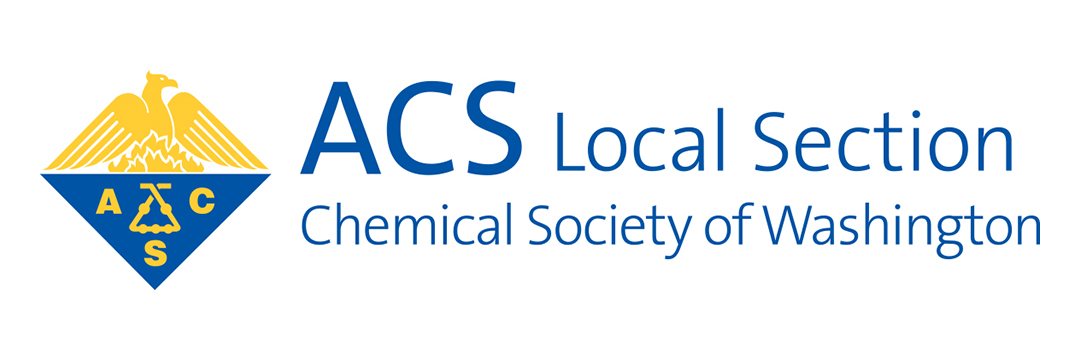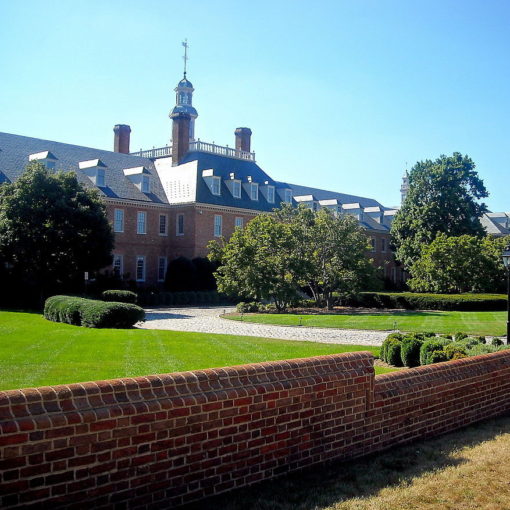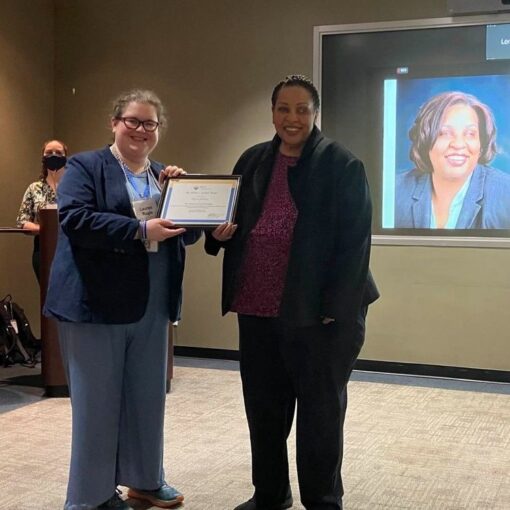View the recording of this event
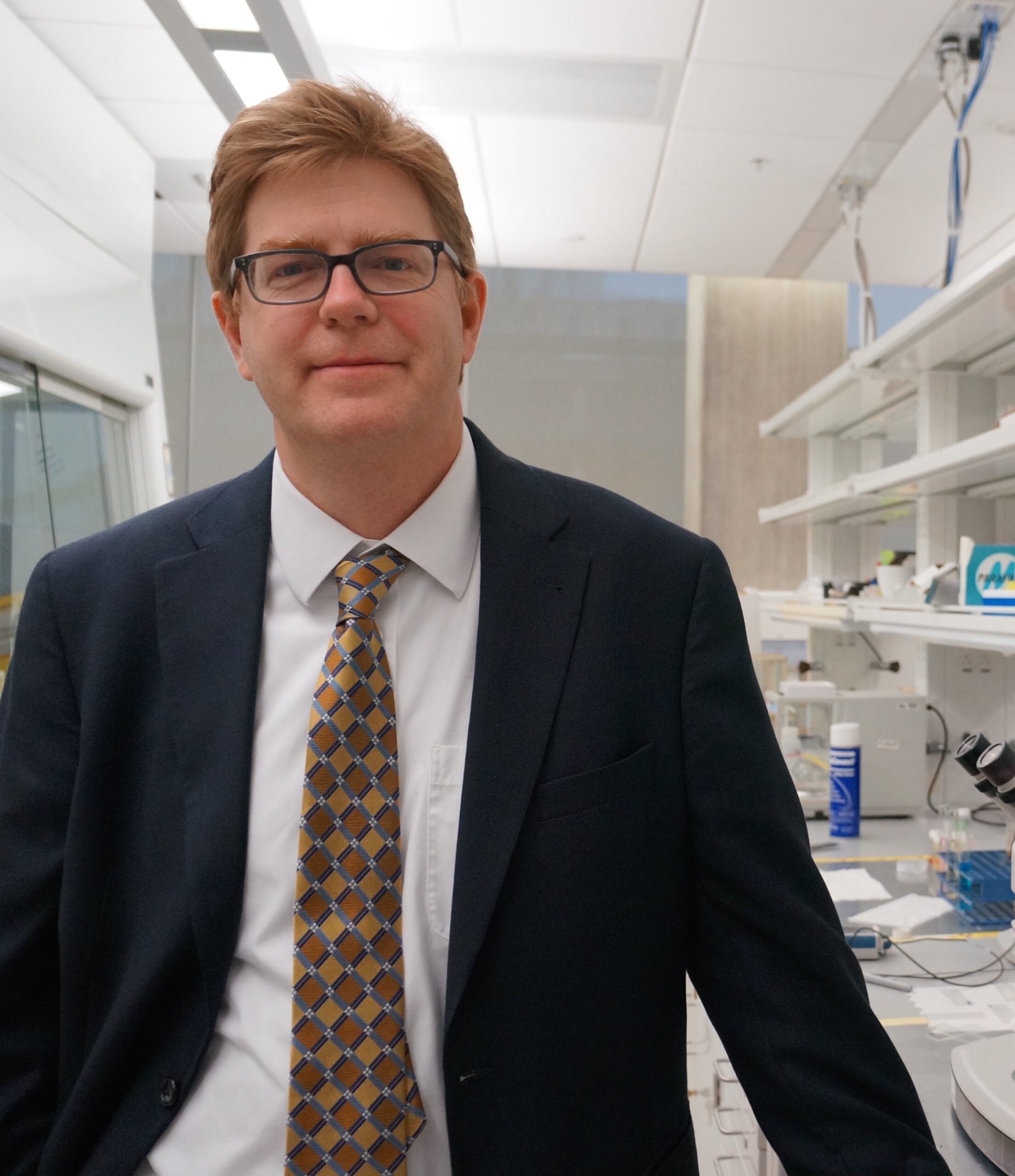
2023 Hillebrand Prize
Dr. Christopher L. Cahill
Department Chair, Professor of Chemistry and International Affairs
The George Washington University
Recipient of the 2023 Hillebrand Prize for illuminating research in condensed phase actinide chemistry and crystal engineering
harnessing organic-actinide interactions, which inform efforts in environmental remediation, separations, and nuclear forensics.
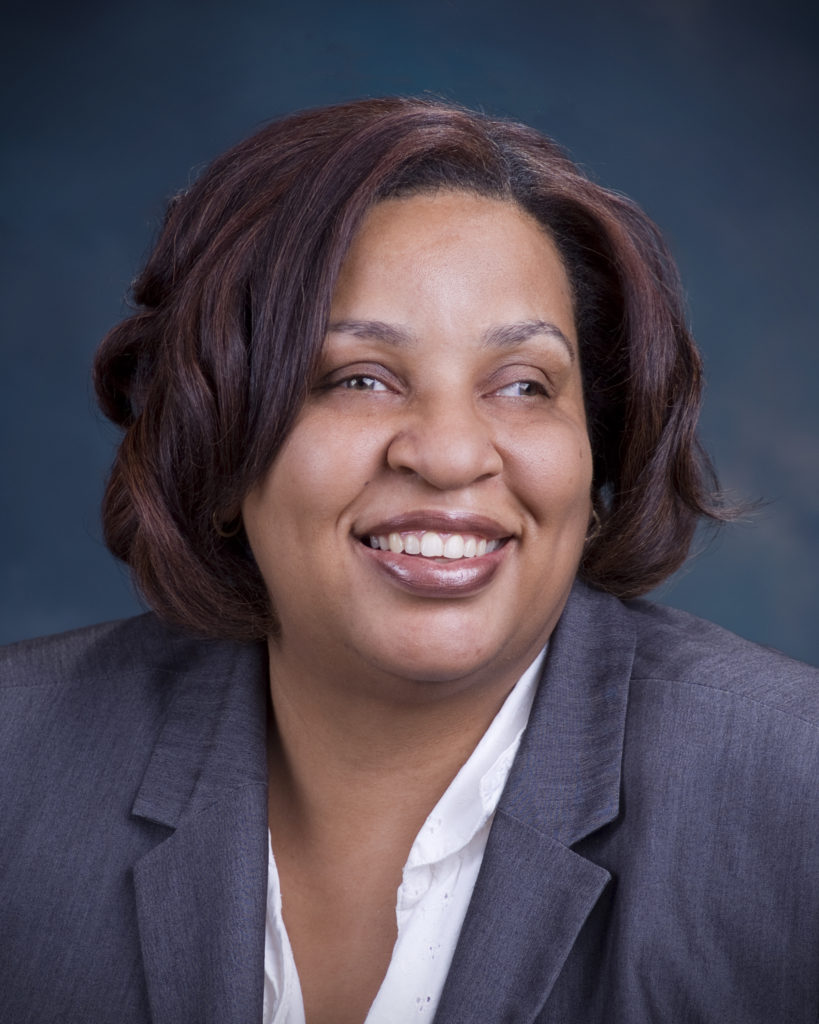
2023 Gordon Award
Dr. Allison A. Aldridge
Recipient of the 2023 Gordon Award in recognition of exemplary service by a CSW member to the profession of chemistry, to the science of chemistry, and/or to the Chemical Society of Washington.
College Chemistry Achievement Awards
Recipients of the College Chemistry Achievement Award are presented to outstanding seniors majoring in chemistry and biochemistry who have demonstrated excellence in chemistry based on a combination of (in order of importance) research experience, coursework, and a desire to pursue chemistry associated careers from each of the area four-year colleges and universities.
Meeting Logistics
Date: Thursday, March 14, 2024
Time: 6:00 p.m. Check-in/Social Hour
6:30 p.m. Dinner
7:00 p.m. Speaker Presentation, Dr. Christopher Cahill
Location: ACS Headquarters – Othmer Hall
1155 16th Street, N.W., Washington, DC
Note: The building is undergoing renovations at the main entrance. Enter around the side of the building (on M Street)
Menu: Meal will be catered by Everfresh Catering and will feature slow-roasted prime rib served with red wine mushroom au jus, chargrilled salmon filet with dijon tarragon caper sauce, pan sauteed tofu topped with artichoke, pepper, tomato tossed over mediterranean spice, with quinoa salad. Includes salad and rolls. Beverages will be provided.
Cost: $30 per person (half price for students)
An RSVP is required for dinner so we can plan appropriate seating and meals.
Registration closed for the virtual option via Zoom
RSVP by noon (ET) Tuesday, March 12, to [email protected]. Please provide the names in your party as well as your contact information when you RSVP. The public is invited to attend. You may attend the talk only at no charge, but reservations are appreciated. If you need any further information or would like to make a reservation, please contact the CSW office by email at [email protected].
Parking: Parking is available in nearby commercial parking garages. Please be aware that garage closing times vary. Parking is also available on the street after 6:30 pm, but be aware that most parking meters are in effect until 10:00 pm and may be limited to 2 hours. You should check the individual meters for details and payment methods as some are no longer coin-operated.
Metro: Blue/Orange/Silver Line: McPherson Square or Farragut West.
Red Line: Farragut North
Speaker Bio
Christopher Cahill was born in Huntington, NY and grew up on an apple orchard in nearby Fort Salonga. His education includes a BS in Geochemistry from the State University of New York (SUNY) at Fredonia (1993) and a PhD in Chemistry from SUNY-Stony Brook (1999). He joined the faculty of GW in 2000 after a one-year post-doctoral position in the Environmental Mineralogy group at the University of Notre Dame. He is an expert in solid-state and materials chemistry, with a particular emphasis on X-ray crystallography and structure-property relationships in hybrid materials of relevance to the nuclear fuel cycle. He has published over 165 peer-reviewed papers in a range of areas related to the synthesis and structural characterization of materials and minerals. Current research areas include exploring the behavior of uranium and transuranic species under environmentally relevant conditions, as well as the synthesis of lanthanide containing sensor materials for nuclear forensics applications. Chris is the first physical scientist at GW to hold a joint appointment in the Elliott School of International Affairs, where he develops and delivers technical curricula targeting non-technical nuclear policy professionals. He is a recipient of the prestigious NSF CAREER Award (2004), a Bender Teaching Award (2005), a Fulbright Scholarship (2008), the Trachtenberg Prize for Teaching (2013), the Graduate Mentorship Award from the Vice President for Research at GW (2021), and was elected a Fellow of the American Association for the Advancement of Science (2021). He is a past President of the American Crystallographic Association (2014-2016), a member of the Cosmos Club, and has held visiting researcher positions at the Carnegie Institution of Washington and Argonne National Laboratory. During 2015-2016, he spent a sabbatical as the American Institute of Physics State Department Science Fellow at the US State Department’s Office of Weapons of Mass Destruction Terrorism on the Nuclear Forensics Team. Chris served as Acting Director of the Institute for International Science and Technology Policy at GW (2018) and has been the Chair of the Chemistry Department since 2019.
Abstract
Prof. Christopher Cahill will present some highlights of his research career from the past 24 years at GW. This will include his keen interests in establishing structure property relationships in (for example) lanthanide and actinide materials as relevant to the nuclear fuel cycle, as well as p and d block compounds with applications in radiation detection and solar cells. A common theme across these diverse compositions is the use of non-covalent interactions such as hydrogen- or halogen-bonding to 1. direct assembly of desired architectures in the solid state and 2. influence the electronic properties thereof. Examples of the latter include manipulating fluorescence signatures in uranium bearing materials, and molecular orbital constructs in Sb and Te halide perovskites. Moreover, he will touch on his interests in science policy and reflect on his year at the US Department of State as a member of Nuclear Forensics team within the Bureau of International Security and Nonproliferation.
